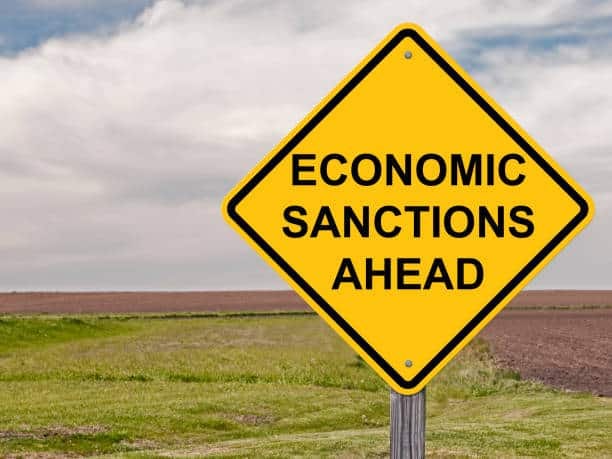Congress, NGOs Putting Pressure on White House to Sanction Africans
The Joe Biden administration is resisting pressure to blacklist African leaders, Robbie Gramer reports in Foreign Policy. Members of Congress and human rights groups claim the sanctions are needed to punish human rights abuses.
The White House “is sitting on dozens of potential sanctions for human rights violators and coup-plotters in countries in Africa, refusing to pull the trigger despite mounting pressure from US lawmakers and human rights advocates, according to seven officials, congressional aides, and experts,” Gramer writes.
He says the State Department has drafted extensive sanctions against Ethiopia, South Sudan and other African leaders. “The US State Department has extensive dockets for possible sanctions on people involved in grave human rights violations in countries including South Sudan; Ethiopia,” according to Gramer.
Gramer cites former CIA and State Department official Cameron Hudson, who claims the lack of sanctions “makes us look like a paper tiger.” Additionally, Senator Bob Menendez said the lack of sanctions created a “gnawing question for those of us who are big advocates for human rights and democracy.”
Over the past two decades, sanctions have become a favorite tool for both Republican and Democratic presidents. Daniel Larison explains blacklisting foreign leaders and counties “are perceived as low-cost, low-risk measures that penalize other governments for their abuses or other undesirable activities.”
However, US economic warfare has been highly ineffective. Washington currently has embargos against Cuba, Venezuela, Iran, Russia, Syria and North Korea and has failed to significantly change the policy in any country.
Larison explains economic warfare has become less effective because the White House has failed to follow through on promised sanctions relief. “The inability of the U.S. government to deliver credible, lasting sanctions relief is one of the bigger impediments to successful negotiations with targeted governments, because the other side has no reason to believe that the U.S. will make good on its promises even if they make all of the concessions that Washington seeks,” he wrote in a recent article posted to his substack.
While sanctions often do not result in the targeted government changing its policy, the people of the countries suffer. Richard Hanania found US sanctions cause the blacklisted country to have its GDP take a one percent hit per year. “The effects of American sanctions were smaller but still significant, reducing GDP by about 1 percent a year, for a total effect of a 13.4 percent decline over seven years.” He continued, “The more stringent the sanctions regime, the greater the economic decline.”
The decline in GDP often results in critical shortages in targeted countries. Studies of Iran and Venezuela found US sanctions caused tens of thousands of deaths in recent years.
Sanctions in Africa recently proved ineffective. After a Pentagon-trained coup-leader overthrew the government in Mali, the Economic Community of West African States (ECWAS) sanctioned Bamako. In January ECWAS blacklisted the Malian government. After months of warnings from NGOs about the suffering the sanctions would cause and protests by the Malian people, ECWAS agreed to lift sanctions on Bamako.
Africa has so far suffered from the Western sanctions targeting Russia. The White House has encouraged African countries to roll back ties with Moscow, even if it caused economic pain in developing nations.
It is not clear why the White House has resisted the sanctions. Commenting on demands to sanction Sudan, the State Department noted that blacklists were “only one tool the US government has at its disposal.”



